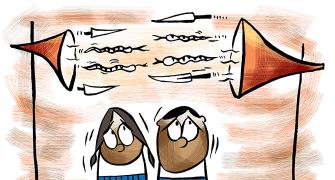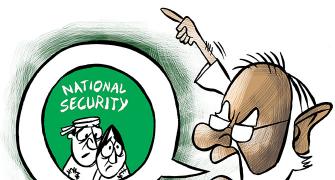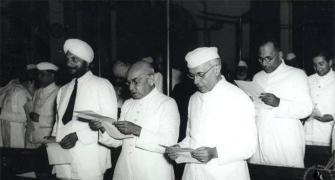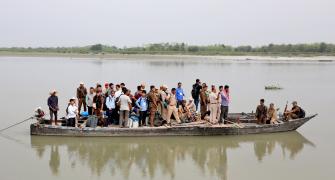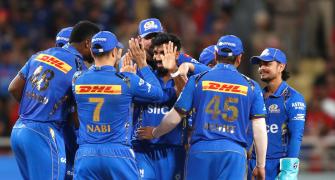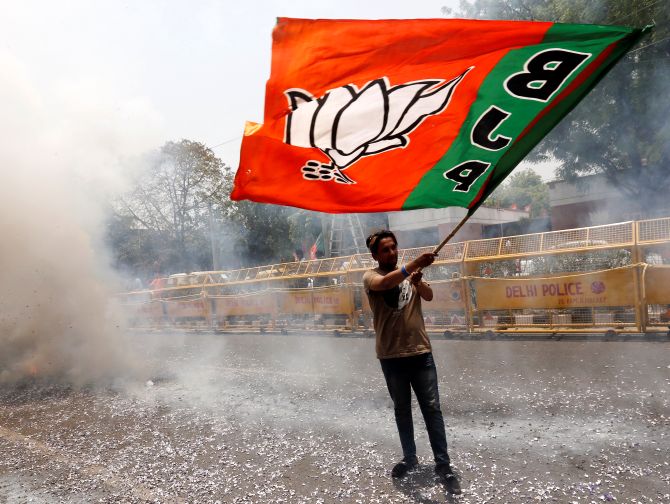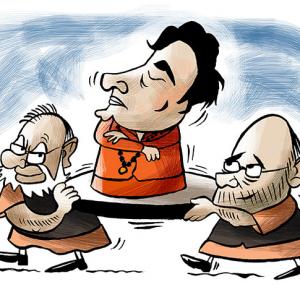'I do not think it's possible for the winners and losers to shake hands and go back to regular business at the end of this.'
'It seems visceral, personal and nasty at a depth we have not plumbed before,' says Aakar Patel.
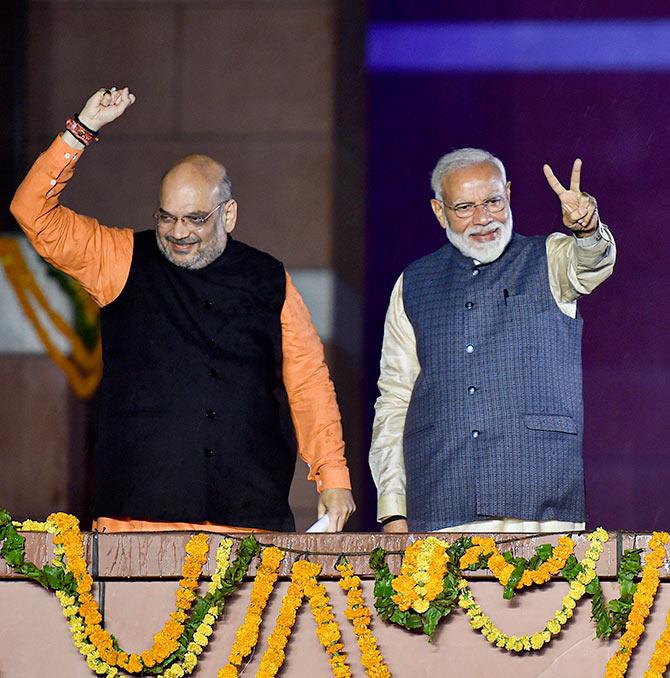
A retired diplomat I have been following for some time now wrote the other day that his generation had never seen an election as vitriolic as this one. Many of us think that this is true. Something seems to have shifted in our politics as a result of this divisiveness, though it is unclear at the moment what it is.
The prime minister was asked about this in two separate interviews recently. To the first reporter, a newspaper journalist, who asked why the narrative of the election was so polarising, Narendra Damodardas Modi said, 'You have to understand that we are not choosing a class monitor here. We are deciding the direction this country takes. We are deciding the future of 130 crore Indians, especially the 65 per cent of the population which is under the age of 35. A lot is at stake.'
To me, this response is understandable. The Bharatiya Janata Party plays hard in every aspect of politics.
It has the best ground game in terms of mobilisation, it has the best online strategy and it extends this to all aspects of the campaign. It expects that it will be attacked (at least according to the prime minister) in a particular way and it will also not hold back from using its own weaponry.
It is what he said after this that would alarm some of us. The prime minister said, 'Now, the people of India will be able to make a clear choice between the two ways of looking at the country. Those who say family first or those who say India first. Those who send love letters when terror strikes or those who answer terrorists in their own language. Those who stand with the 'tukde-tukde' gang or those who stand with the armed forces.'
The choice for voters he said was 'between those who stand to protect those who are guilty of sedition and those who live and die to protect and preserve India’s integrity'.
And so the options before voters are choosing either the traitor or the patriot. In essence, this is not a choice. There is a right and wrong here, we are being told, and only the prime minister's party is right.
All those who are contesting against it -- whether it is the People's Democratic Party in Jammu and Kashmir, the Trinamool Congress in West Bengal, the Biju Janata Dal in Odisha, the Congress in Gujarat, the Dravida Munnetra Kazhagam in Tamil Nadu, the Jharkhand Mukti Morcha or the Communist Party of India-Marxist in Tripura -- are traitors and not political opponents.
The problem here is not only that this is being said by the prime minister; the problem is that he seems to believe it.
There is a pattern of framing any opposition to this government's actions as treason, which runs through the five years it has held office.
To question the effectiveness of its military actions is treason.
To stand up for those defending the rights of Adivasis and Kashmiris is treason.
What happens after this? This is what I meant in saying that things are unclear from here on. I do not think it's possible for the winners and losers to shake hands and go back to regular business at the end of this. It seems visceral, personal and nasty at a depth we have not plumbed before.
Older readers will remember a time from 30 years ago when no other party would align with the BJP because it was 'communal' (a word that was still fresh at the time, and had deeper meaning than it does today).
This was because the violence against Indians that was unleashed by its Ayodhya campaign claimed over a thousand lives, though the party profited quite well, it must be accepted.
The avuncular Atal Bihari Vajpayee nibbled away at the misgivings of some of these same parties and was able to attract towards the BJP a large number of regional forces that helped it come to power.
That avuncular aspect is gone and we are faced with what the BJP is and has always said it is. But this time it is the dominant political force in the Indian subcontinent.
It can win elections by asking Indians to choose between patriots and traitors. The time when it was seen as dangerous for India is behind us now and it is those opposed to the BJP who have been framed as dangerous.
I said that Modi was asked about this twice. A few days after the first interview, when the campaign in West Bengal was climaxing and it became apparent that the thing was slipping out of control, the PM was asked the same question again in a different manner.
The interviewer was a Bengali television journalist who asked Modi what his little daughter would learn from this campaign and whether we were teaching our children the right things by introducing rhetoric that was this nasty.
Modi dismissed the question by saying that children were smarter than we adults were at their age, that they knew many more things than we did and this would not affect them. I thought it was a clever response, but perhaps did not address the question.
A more honest answer would have been to say that there was nothing wrong in what was being said about the Opposition. That all resistance to majoritarianism equalled treason against India was exactly what we should be teaching our children.


